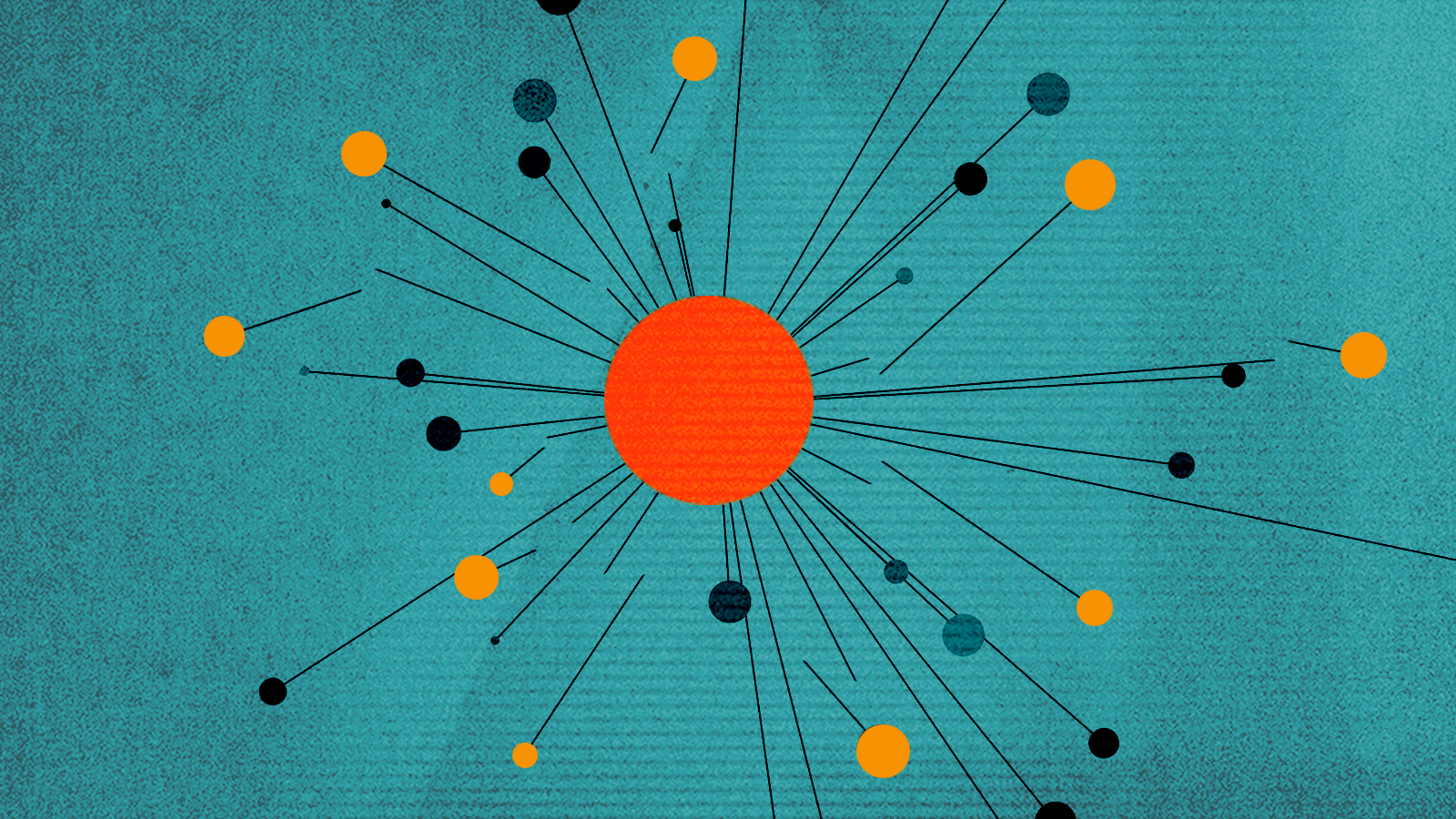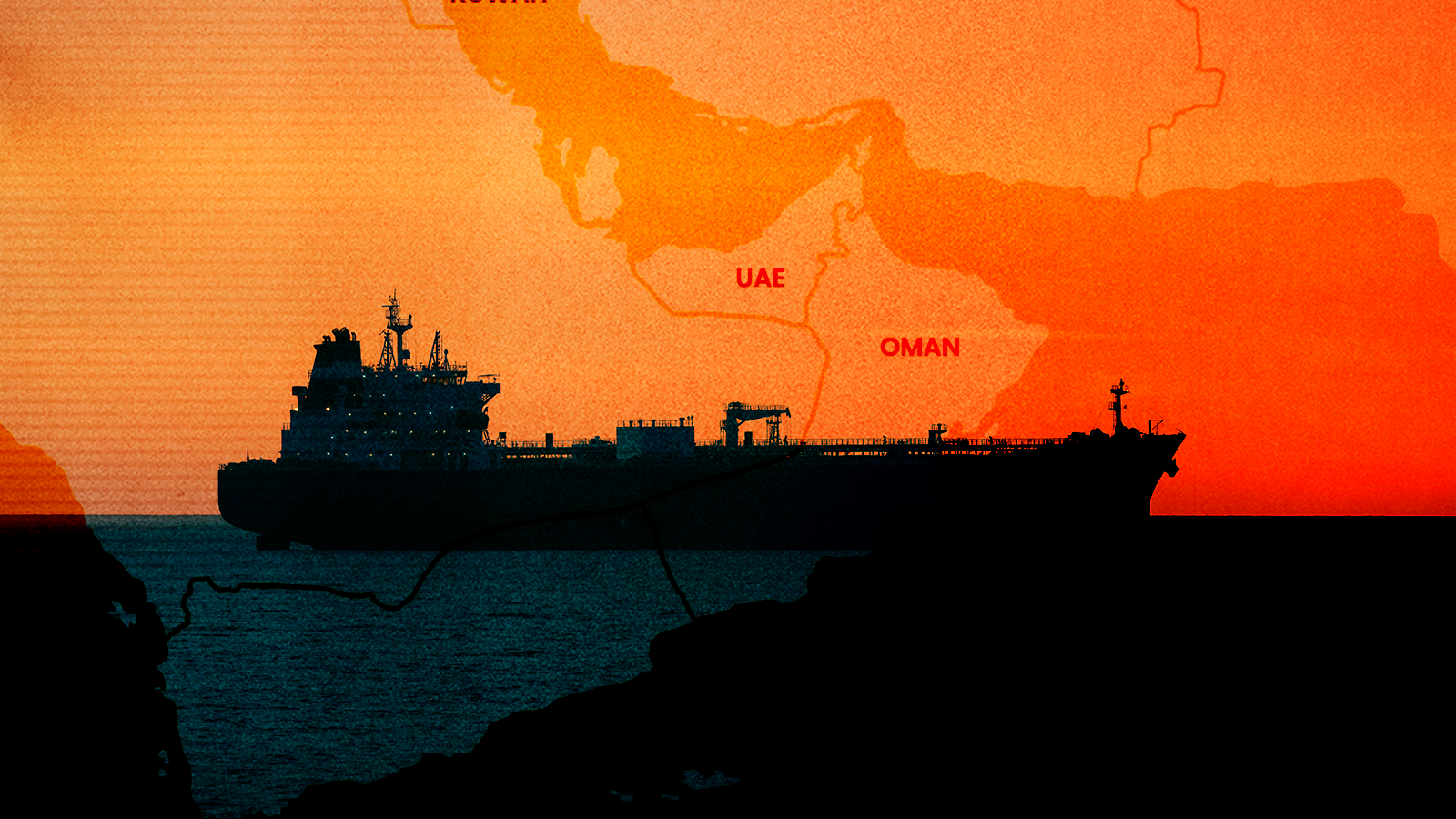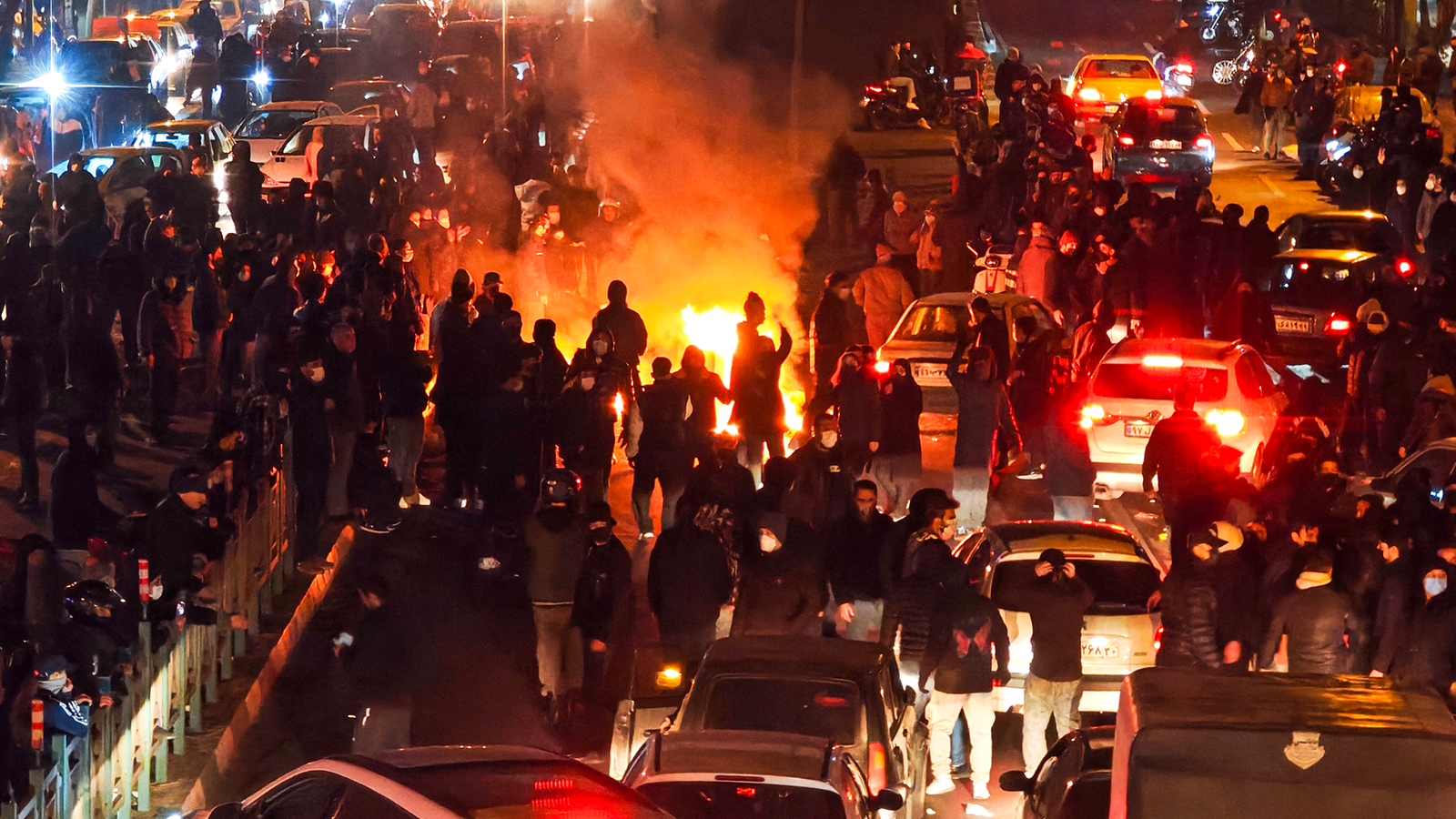The European Union overcame a deadlock on Friday to adopt an 18th sanctions package against Russia, a rollout that sets a new price cap on Russia’s oil and aggressively targets its wartime economy.
The new measures, which designate an additional 41 entities and 14 individuals, mark the EU’s most significant effort in more than a year to curb Russia’s energy revenues and the international networks enabling its evasion.
“Each sanction weakens Russia's ability to wage war,” EU foreign policy chief Kaja Kallas said in a statement. “The message is clear: Europe will not back down in its support for Ukraine. The EU will keep raising the pressure until Russia ends its war.”
Slovakia had held up the agreement over concerns about a separate planned phase-out of Russian gas imports by 2028. But the final 18th package takes square aim at Russian oil—and the U.K. later Friday joined the price-cap effort, too.
Here are four key takeaways.
Leaders of the G7 agreed to cap the price of Russian oil products at $60 USD a barrel in late 2022, a move that banned shipping, insurance and reinsurance companies from handling Russian crude above that price. But shifting global markets and weakening benchmark prices since then have rendered that price cap less effective.
The EU’s 18th package aims to reinvigorate it by introducing a floating mechanism that sets the cap at 15% below the average global price, calculated on a rolling basis over the previous six months. The new cap will be set at $47.60 and will next be adjusted in January 2026. The U.K. then announced that it would implement the same threshold.
What to watch: With more than half its members now on board, will the G7 now issue its own cap change? If not, it could create challenges.
For one thing, different caps could allow traders to circumvent the EU and U.K. measures by rerouting Russian oil products through U.S. or other channels. And for businesses operating across jurisdictions, differences could introduce new compliance complexity and conflicting enforcement expectations.
The 18th sanctions package designates 105 additional vessels associated with Russia’s “shadow fleet,” the tankers that operate under deceptive practices to mask their shipping of Russian oil, in violation both of seaborne embargoes and the price cap. That follows the EU’s designation of 189 such vessels from its 17th sanctions package, back in May. (Update, 7/21: The U.K. announced Monday that it was designating 135 more oil tankers itself.)
In a significant move for Europe, all transactions related to Nord Stream 1 and 2 infrastructure have been banned as well. This effectively ends the prospect of EU-based operators insuring or servicing these pipelines, further cementing the bloc’s strategic shift away from dependence on Russian energy exports.
The EU piled on further pressure by banning the import of petroleum products that are refined from Russian-origin crude in third countries and then rebranded for sale in Europe. Oil plants in India are among those that have reportedly taken advantage of this “refinery loophole.”
The new measures, which designate an additional 41 entities and 14 individuals, mark the EU’s most significant effort in more than a year to curb Russia’s energy revenues and the international networks enabling its evasion.
“Each sanction weakens Russia's ability to wage war,” EU foreign policy chief Kaja Kallas said in a statement. “The message is clear: Europe will not back down in its support for Ukraine. The EU will keep raising the pressure until Russia ends its war.”
Slovakia had held up the agreement over concerns about a separate planned phase-out of Russian gas imports by 2028. But the final 18th package takes square aim at Russian oil—and the U.K. later Friday joined the price-cap effort, too.
Here are four key takeaways.
1. A Reduced, Rejuvenated Oil Price Cap
What happened: The implementation of a new-look Russian oil price cap is the package’s headline measure, and it’s a big one.Leaders of the G7 agreed to cap the price of Russian oil products at $60 USD a barrel in late 2022, a move that banned shipping, insurance and reinsurance companies from handling Russian crude above that price. But shifting global markets and weakening benchmark prices since then have rendered that price cap less effective.
The EU’s 18th package aims to reinvigorate it by introducing a floating mechanism that sets the cap at 15% below the average global price, calculated on a rolling basis over the previous six months. The new cap will be set at $47.60 and will next be adjusted in January 2026. The U.K. then announced that it would implement the same threshold.
What to watch: With more than half its members now on board, will the G7 now issue its own cap change? If not, it could create challenges.
For one thing, different caps could allow traders to circumvent the EU and U.K. measures by rerouting Russian oil products through U.S. or other channels. And for businesses operating across jurisdictions, differences could introduce new compliance complexity and conflicting enforcement expectations.
2. A Crackdown on Russian Energy Revenues
What happened: In tandem with the price-cap revision, the EU expanded its aim at the Russian energy sector, which remains Moscow’s most lucrative source of export revenue.The 18th sanctions package designates 105 additional vessels associated with Russia’s “shadow fleet,” the tankers that operate under deceptive practices to mask their shipping of Russian oil, in violation both of seaborne embargoes and the price cap. That follows the EU’s designation of 189 such vessels from its 17th sanctions package, back in May. (Update, 7/21: The U.K. announced Monday that it was designating 135 more oil tankers itself.)
In a significant move for Europe, all transactions related to Nord Stream 1 and 2 infrastructure have been banned as well. This effectively ends the prospect of EU-based operators insuring or servicing these pipelines, further cementing the bloc’s strategic shift away from dependence on Russian energy exports.
The EU piled on further pressure by banning the import of petroleum products that are refined from Russian-origin crude in third countries and then rebranded for sale in Europe. Oil plants in India are among those that have reportedly taken advantage of this “refinery loophole.”
- Of note: This measure includes an exception for oil coming from Canada, Norway, Switzerland, the U.K. and the U.S.
MORE FUNDING STREAMS: The EU package made another major move to cut off Russia’s cash flow: banning all transactions with 22 Russian banks; the Russian Direct Investment fund, a Russian sovereign wealth fund; and its subsidiaries.
Media outlets have reported in recent months that Russia’s larger National Wealth Fund, which it has used to fuel its warfighting and which the U.S. and EU both targeted previously, has been dwindling.
Media outlets have reported in recent months that Russia’s larger National Wealth Fund, which it has used to fuel its warfighting and which the U.S. and EU both targeted previously, has been dwindling.
3. Tackling Sanctions Evasion and Foreign Facilitators
What happened: Facilitators abroad have played a key role in Russia’s sanctions evasion, triggering international concerns. The 18th package’s range of targets outside Russia reflect that state of play. Among them:- three China-based suppliers to Russia that the EU said “sell goods used on the battlefield.”
- eight companies “operating in the Belarusian military-industrial complex.”
- an Indian oil refinery that the EU called “a major customer” of the shadow fleet and whose main shareholder is the Russian oil giant Rosneft.
- the private operator of an international flag registry, due to its links with Russia’s maritime evasion tactics.
Big picture: The EU’s increasing focus on Russian circumvention through third countries is in line with recent measures and signals coming out of the U.K. and U.S.
- The U.K. Foreign Office last month issued guidance to non-U.K. businesses about the risks they face if they facilitate sanctions circumvention, including being designated themselves.
- In the U.S., President Trump this week threatened to impose secondary tariffs if Russia does not reach a peace deal with Ukraine by Sept. 2. Those tariffs—which Trump said could be set at “about 100%”—would affect exports to the U.S. by countries that trade with Moscow, putting pressure on its partners.
4. Addressing Russian Cyber Threats and Human Rights Violations
What the U.K. did: Besides its price-cap move, the U.K. was active with Russia sanctions on Friday itself—on a smaller but striking scale.The Foreign Office announced that it had designated three units of Russia’s military intelligence agency and 18 military intelligence officers for “conducting a sustained campaign of malicious cyber activity over many years, including in the UK.” Some of the GRU officers, it said, had targeted the phone of Yulia Skripal years before the attempted poisoning of her and her ex-GRU father in England.
- Soundbite: “GRU spies are running a campaign to destabilise Europe, undermine Ukraine’s sovereignty and threaten the safety of British citizens,” Foreign Secretary David Lammy said in a statement. “The Kremlin should be in no doubt: we see what they are trying to do in the shadows and we won’t tolerate it.”
- the BRICS Journalists Association and the Foundation to Battle Injustice, both of which the EU said had been founded by Yevgeny Prigozhin, the now-deceased former leader of the Wagner Group. The two organizations were involved in foreign information manipulation and interference operations targeting France and Ukraine, the EU said.
- five members of the Russian judiciary, for their role in the “politically motivated” prosecution of Alexei Gorinov, a former Moscow municipal deputy who had spoken out against Russia’s aggression in Ukraine.
The bottom line
The 18th package arrives as Western allies, including the U.S., have renewed efforts to bolster Ukraine’s military standing. How much transatlantic coordination now follows the package, and particularly the new-look oil price cap, may well determine its impact.From a business standpoint, Western jurisdictions’ expanded focus on third-country operators and tightened enforcement around oil-related trade signals greater compliance risks for firms outside Russia. Those involved in logistics, energy trading or the export of dual-use items should expect particular scrutiny under the EU’s widening sanctions net.
Read more from the Kharon Brief:
- After Russia’s Invasion, This Network’s Workarounds Kept American Tech Flowing
- EU Cracks Down on Russia’s Business Leaders with a New Power: Sanctioning Their Enablers
- Kharon Data: A BIS 50% Rule Would Pull Thousands of Hidden Subsidiaries into Export-Control Crosshairs
- ‘The Robot Dog’s Time to Kill’: At China's Star Robotics Firm, the Military Ties Keep Mountin







